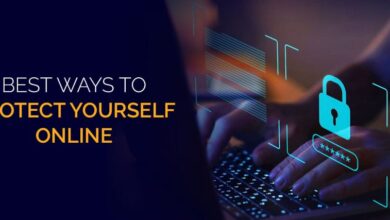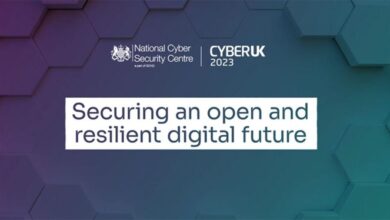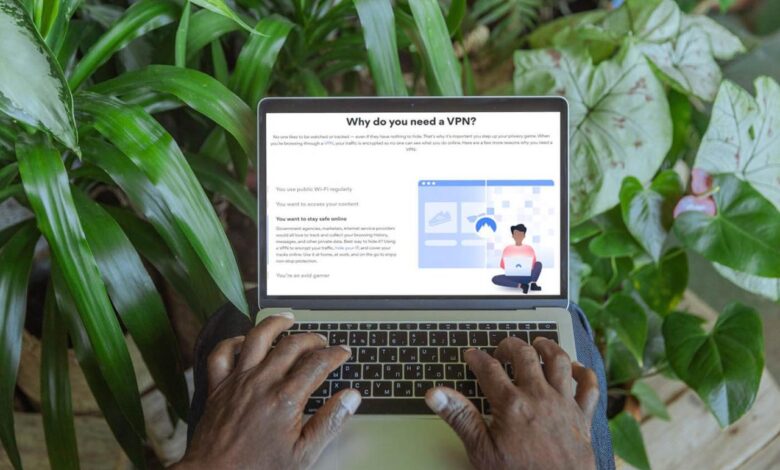
9 Reasons Why Everyone Should Use a VPN
9 Reasons Why Everyone Should Use a VPN: In today’s digital world, where our personal information is constantly at risk, a VPN is no longer a luxury—it’s a necessity. From safeguarding your data on public Wi-Fi to bypassing annoying geo-restrictions and even boosting your online anonymity, the benefits are numerous and impactful. Let’s dive into nine compelling reasons why you should seriously consider making a VPN your new online best friend.
We’ll explore how a VPN masks your IP address, encrypts your internet traffic, and protects you from various online threats. We’ll also look at how it can unlock access to region-locked content, improve your security on unsecured networks, and even help prevent your internet service provider from throttling your speeds. Get ready to discover why a VPN is a crucial tool for anyone who values their online privacy and security.
Enhanced Online Privacy: 9 Reasons Why Everyone Should Use A Vpn
In today’s digital world, protecting your online privacy is paramount. A VPN, or Virtual Private Network, is a powerful tool that significantly enhances your security and anonymity while browsing the internet. It acts as a shield, protecting your sensitive information from prying eyes and unwanted access.A VPN masks your IP address, essentially hiding your true location from websites and online services.
Instead of revealing your actual IP address, the VPN server’s IP address is displayed, making it much harder to track your online activity. Simultaneously, a VPN encrypts your internet traffic, transforming your data into an unreadable code. This encryption is crucial for protecting sensitive data like passwords, banking details, and personal communications. Think of it as sending your data in a locked box that only you and the intended recipient possess the key to unlock.
VPN Encryption and Data Protection
The encryption provided by a VPN safeguards your data from various threats. Without a VPN, your internet traffic is transmitted in plain text, leaving it vulnerable to interception by hackers, ISPs, or even government agencies. This vulnerability is particularly concerning when using public Wi-Fi networks, which often lack robust security measures. A VPN creates a secure tunnel, ensuring that even if someone intercepts your data, they won’t be able to decipher it.
This protection is critical when accessing sensitive accounts like online banking or email, especially in unsecured environments. For instance, if you’re checking your bank balance on public Wi-Fi at a coffee shop, a VPN provides an essential layer of protection against potential data breaches.
Public Wi-Fi Security and VPN Usage
Using public Wi-Fi without a VPN is like leaving your front door unlocked. Public Wi-Fi networks are often unsecured, making your data vulnerable to eavesdropping. Anyone on the same network could potentially intercept your unencrypted traffic, gaining access to your passwords, emails, and other sensitive information. A VPN creates a secure connection, encrypting your data and protecting it from these threats, even on an insecure network.
This is especially important when using public Wi-Fi for sensitive tasks such as online shopping or accessing personal emails.
Comparison of VPN Protocols
Choosing the right VPN protocol can significantly impact your privacy and online experience. Different protocols offer varying levels of security, speed, and features. Here’s a comparison of some popular protocols:
| Protocol | Encryption Strength | Speed | Security Features |
|---|---|---|---|
| OpenVPN | High (AES-256 typically) | Moderate | Strong encryption, open-source, widely supported |
| WireGuard | High (ChaCha20-Poly1305 typically) | Fast | Modern, fast, simple design, strong encryption |
| IKEv2/IPsec | High (AES-256 typically) | Fast | Good performance, strong encryption, built-in security features |
| L2TP/IPsec | High (AES-256 typically) | Moderate | Strong encryption, widely supported, but can be slower than others |
Bypassing Geo-Restrictions
VPNs are incredibly useful for accessing content that’s geographically restricted. Many streaming services, websites, and even apps limit their content based on your IP address, effectively creating digital walls around specific regions. A VPN masks your real IP address, making it appear as though you’re browsing from a different location, thus allowing you to bypass these restrictions and access a wider variety of content.A VPN achieves this by routing your internet traffic through a secure server located in a different country.
When you connect to a VPN server in, say, the United Kingdom, your internet traffic appears to originate from that server’s IP address, effectively making it seem like you’re browsing from the UK, even if you’re physically located elsewhere. This allows you to access content that’s only available to UK residents. This technology is particularly useful in countries with strict censorship laws, where access to information is heavily controlled.
Circumventing Censorship in Restrictive Countries
Many countries employ strict internet censorship, blocking access to websites, social media platforms, and streaming services deemed undesirable by their governments. China, for example, utilizes the “Great Firewall” to block access to a vast array of websites, including Google, Facebook, and Twitter. Similarly, Iran and North Korea have heavily restricted internet access, limiting citizens’ ability to access global information and communication tools.
A VPN can help users in these countries circumvent these restrictions by connecting to servers located in regions with less stringent censorship policies, effectively masking their location and accessing blocked content. The VPN encrypts their internet traffic, further protecting their online activities from government surveillance.
Technical Mechanisms of Geo-Blocking Circumvention
Geo-blocking relies on identifying a user’s IP address to determine their location. When you connect to a VPN, your device sends its traffic to the VPN server first. The VPN server then forwards the traffic to the internet, masking your real IP address with the IP address of the server. This makes it appear as though you’re browsing from the server’s location, bypassing the geo-restriction.
The process involves encryption to ensure the privacy of your data while it’s being routed through the VPN server. This encryption prevents third parties, including your internet service provider and government agencies, from monitoring your online activity.
Examples of Geo-Restricted Streaming Services
Understanding which services restrict access based on location is crucial. The following list provides examples of popular streaming services and their typical regional restrictions:
Many popular streaming services restrict their content based on geographic location. This means that the content available to you will vary depending on your IP address. A VPN can help you overcome these restrictions, but it’s important to be aware of the terms of service of each streaming platform, as using a VPN to access content outside your region may violate their rules.
- Netflix: Content varies significantly by region. A US Netflix account offers a different selection of movies and shows compared to a UK Netflix account.
- Hulu: Primarily available in the United States.
- BBC iPlayer: Primarily available in the United Kingdom.
- Amazon Prime Video: Content varies by region, though less dramatically than Netflix.
- Disney+: Content varies by region, with some titles exclusive to certain countries.
Secure Public Wi-Fi Connections
Public Wi-Fi is incredibly convenient, letting us check emails, browse the web, or even work remotely from cafes, airports, and hotels. However, this convenience comes at a cost: these networks are often unsecured, leaving your personal data vulnerable to interception by hackers. Using public Wi-Fi without proper protection exposes you to significant risks, making a VPN an essential tool for anyone who regularly connects to these networks.Using a VPN on public Wi-Fi creates a secure, encrypted tunnel between your device and the VPN server.
This means that even if someone intercepts your data, they won’t be able to decipher it, protecting your sensitive information like passwords, banking details, and personal communications. Think of it as sending a letter in a sealed, unbreakable envelope – only the intended recipient (the VPN server, and ultimately the website you’re visiting) can open it. Without a VPN, your data transmission is like sending a postcard – anyone can read it.
VPN Connection on Public Wi-Fi: A Step-by-Step Guide
Before connecting to any public Wi-Fi, ensure your VPN is already installed and configured. Here’s how to establish a secure connection:
1. Connect to the Public Wi-Fi
Find the network and enter the password if required. Avoid connecting until you’ve completed the next steps.
2. Launch your VPN application
Open the VPN software on your device.
3. Select a Server
Choose a server location. While the closest server is often fastest, consider a server in a different country for enhanced privacy.
4. Connect to the VPN
Click the “Connect” button. Your VPN client will establish an encrypted connection. You should see a status indicator showing that you are connected and protected.
5. Browse Securely
Once connected, you can now safely browse the internet and use online services.
Data Security Comparison: VPN vs. No VPN on Public Wi-Fi
Imagine you’re sending a package containing valuable items. Without a VPN (no protection), this package is sent in a clear box, visible to anyone. Anyone along the delivery route could easily steal the contents. With a VPN, however, the package is sealed inside a tamper-proof, encrypted container. Even if someone intercepts the package, they cannot access the contents without the special key (the VPN encryption).
This analogy perfectly illustrates how a VPN protects your data on public Wi-Fi, ensuring only you and the intended recipient can access it.
Protecting Against Data Tracking
In today’s digital world, our online activities are constantly being monitored. Internet Service Providers (ISPs) and advertisers employ various methods to track our browsing habits, creating detailed profiles of our interests and behaviors. This data is then used for targeted advertising, market research, and even potentially for more intrusive purposes. A VPN, however, offers a powerful defense against this pervasive tracking, significantly enhancing your online privacy.A VPN, or Virtual Private Network, works by masking your IP address and encrypting your internet traffic.
Your IP address is essentially your online identifier, revealing your location and other identifying information to websites and services you visit. By masking this IP address with the VPN server’s IP address, a VPN makes it much harder for trackers to pinpoint your identity and activities. Simultaneously, encryption scrambles your data, making it unreadable to anyone intercepting your connection, including your ISP and advertisers.
Internet Service Provider Tracking Practices
Different ISPs have varying data collection policies. Some may only collect basic connection logs, while others might log more detailed browsing history. For example, some ISPs may sell aggregated user data to advertisers, while others might have stricter privacy policies prohibiting such practices. It’s crucial to review your ISP’s privacy policy to understand what data they collect and how they use it.
The level of tracking varies considerably; some ISPs are known for their more transparent and privacy-respecting policies, while others are less forthcoming about their data collection practices. Understanding these differences is key to making informed choices about your online privacy.
Common Online Tracking Methods and VPN Mitigation
Understanding how trackers operate is crucial to appreciating the protective role of a VPN. Here are some common methods and how a VPN helps:
Before the list, it is important to note that while a VPN offers significant protection, it’s not a foolproof solution. Some sophisticated trackers may still be able to gather some information, even with a VPN active. However, a VPN drastically reduces the effectiveness of most tracking techniques.
- Cookies: Websites use cookies to track your browsing activity across different sites. A VPN masks your IP address, making it harder for websites to link your activity across multiple sessions.
- Pixel Tracking: Tiny images embedded in websites track your visits and interactions. A VPN encrypts your connection, making it difficult for trackers to see your IP address or other identifying information.
- Browser Fingerprinting: This technique identifies you based on your browser settings and configurations. While a VPN doesn’t directly prevent fingerprinting, it reduces the amount of identifiable information available.
- DNS Tracking: Your DNS requests reveal the websites you visit. A VPN often includes DNS leak protection, ensuring your DNS queries are routed through the encrypted VPN connection.
- WebRTC Leaks: WebRTC, a technology used for real-time communication, can sometimes leak your real IP address even when using a VPN. Choosing a reputable VPN with strong WebRTC leak protection is crucial.
Increased Security on Unsecured Networks
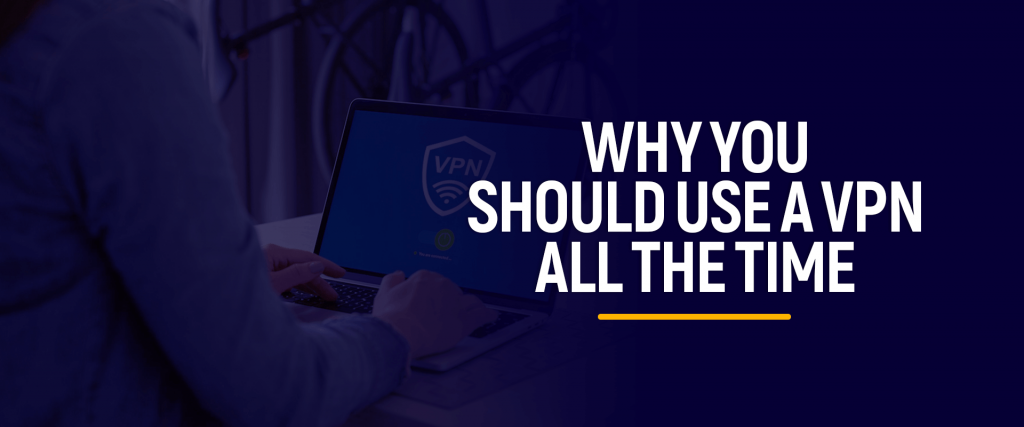
Unsecured networks, whether at home, in the office, or in public spaces, present significant vulnerabilities to your data and online activities. These networks lack the robust security measures found in protected networks, leaving your devices and information susceptible to various threats. A Virtual Private Network (VPN) offers a crucial solution by adding a layer of encryption and security, mitigating many of these risks.A VPN works by creating a secure, encrypted tunnel between your device and the VPN server.
So, I’m diving into the 9 reasons why everyone should use a VPN – better security, bypassing geo-restrictions, and more. But while researching online security, I stumbled upon this fascinating article about domino app dev the low code and pro code future , which got me thinking about how secure app development is. It really highlights the importance of a VPN, especially when working remotely on sensitive projects.
Getting back to those 9 reasons, a VPN is essential for protecting your online privacy and data.
All your internet traffic passes through this tunnel, making it much harder for others to intercept or monitor your data. This is especially important on unsecured networks where your data is more exposed.
Vulnerabilities of Unsecured Networks
Unsecured networks, by their nature, lack the encryption and access controls that protect data on secured networks. This exposes users to several threats. Home networks, for example, might lack strong passwords or firewalls, making them vulnerable to unauthorized access. Office networks, while often having some security measures, can still have weaknesses exploited by malicious insiders or sophisticated external attacks.
Public Wi-Fi hotspots, notoriously insecure, broadcast your data openly, making it easily accessible to anyone with the right tools.
How a VPN Enhances Security on Unsecured Networks
A VPN adds a critical layer of protection by encrypting all your internet traffic. This means that even if someone intercepts your data on an unsecured network, they won’t be able to read it because it’s scrambled. The VPN also masks your IP address, hiding your location and making it more difficult for attackers to target you specifically. Furthermore, a VPN can protect against man-in-the-middle attacks, where a malicious actor intercepts your communication to steal your data.
Examples of Threats and VPN Prevention, 9 reasons why everyone should use a vpn
Consider these scenarios: On a public Wi-Fi network, a hacker could potentially steal your login credentials for online banking if you’re not using a VPN. In an unsecured office network, a malicious employee might try to access sensitive company data. A VPN prevents these threats by encrypting your data, making it unreadable to eavesdroppers, and masking your IP address, making it harder to track your online activity.
Furthermore, a reputable VPN provider will often have robust security measures in place to protect against various attacks.
Comparison of VPN Security Benefits Across Network Types
| Network Type | Security Risks | VPN Benefits | Overall Security Improvement |
|---|---|---|---|
| Home Network | Weak passwords, lack of firewall, vulnerable devices | Encrypted connection, masked IP address, protection against unauthorized access | Significant improvement, especially for IoT devices |
| Office Network | Insider threats, malware, weak security policies | Data encryption, prevents unauthorized access to company resources, protects against man-in-the-middle attacks | Moderate to significant improvement, depending on existing office security |
| Public Wi-Fi | Eavesdropping, man-in-the-middle attacks, data theft | Strong encryption, IP address masking, prevents data interception | Dramatic improvement, essential for secure browsing on public networks |
Accessing Region-Specific Content
Ever wished you could watch that hit TV show everyone’s talking about, but it’s not available in your country? Or perhaps you need access to news sources from a different region to get a more complete picture of a global event? Geographic restrictions, often put in place by licensing agreements or government regulations, limit access to online content based on your location.
This is where a VPN becomes incredibly useful. A VPN allows you to bypass these restrictions and access a world of content previously unavailable to you.Region-specific content varies wildly across the globe. For example, Netflix’s catalog differs significantly between the United States, the United Kingdom, and Japan. What’s available in one country might be completely absent in another.
Similarly, news websites often present different perspectives and focus on different stories depending on their target audience’s location. Streaming music services also exhibit this regional variation, with different artists and albums available in different regions. This regional variation extends to many other online services.
Advantages of Accessing Region-Specific Content
Accessing content from different regions offers numerous advantages. It allows you to access a wider variety of news sources, providing a more comprehensive understanding of global events and different perspectives on the same news. This combats the potential for biased or incomplete information found by relying on only local news sources. In the realm of entertainment, it opens up a vast library of movies, TV shows, and music that might be unavailable in your region due to licensing agreements or other restrictions.
This significantly enhances your entertainment options and allows you to discover new artists, shows, and films you might otherwise miss.
Choosing a VPN Server Based on Region
Choosing the right VPN server is crucial for accessing region-specific content. Most VPN providers offer a wide selection of servers located in various countries. To access content from a specific region, you need to connect to a VPN server located within that region. For instance, to watch a show only available on the US Netflix catalog, you’d connect to a US-based VPN server.
The VPN then masks your IP address, making it appear as though you’re accessing the internet from the chosen region. This process is usually straightforward, involving selecting the desired country from a list within your VPN software. Many providers also allow you to filter servers based on factors like speed and server load to optimize your viewing experience.
Data Flow with and Without a VPN
Without a VPN, your internet traffic travels directly from your device to the website or service you’re accessing. Your IP address is visible, revealing your actual location. The website or service can then restrict access based on your location.A visual representation would show a straight line from your device to the website, with your IP address clearly labeled.With a VPN, your internet traffic is routed through the VPN server first.
Your device connects to the VPN server, and the VPN server then connects to the website or service. Your actual IP address is masked by the VPN server’s IP address, making it appear as though you are accessing the internet from the VPN server’s location. The website or service sees the VPN server’s IP address, not your own, granting you access to region-specific content.A visual representation would show your device connecting to a VPN server, represented as a secure box, and then a line from the VPN server to the website.
The VPN server’s IP address would be prominently displayed, while your actual IP address would be hidden. Arrows indicating the direction of data flow would enhance the clarity of the illustration.
Enhanced Anonymity Online
In today’s digital world, our online activities leave a significant trail. Every website we visit, every search we conduct, and every message we send generates data that can be tracked and analyzed. This constant surveillance can compromise our privacy and even put us at risk. Achieving online anonymity is becoming increasingly important for protecting our personal information and maintaining control over our digital footprint.A VPN, or Virtual Private Network, plays a crucial role in enhancing online anonymity.
By encrypting your internet traffic and masking your IP address, a VPN makes it significantly harder for third parties to track your online activity. Your internet service provider (ISP), advertisers, and even governments have a much more difficult time identifying you and monitoring your browsing habits. This added layer of security is essential in maintaining your privacy and protecting your identity online.
Anonymity in Sensitive Situations
There are numerous situations where online anonymity is paramount. Whistleblowers, for example, often rely on VPNs to protect their identities when reporting illegal or unethical activities. Journalists investigating sensitive topics also benefit from the anonymity provided by a VPN, allowing them to access information and communicate with sources without fear of reprisal. Individuals living under oppressive regimes may use VPNs to access information and communicate freely without government censorship or surveillance.
Accessing sensitive medical or financial information online also benefits greatly from the enhanced security a VPN provides. Imagine trying to access your online banking information from a public Wi-Fi hotspot without a VPN – the risk of data interception is considerable.
Benefits of Online Anonymity with a VPN
The benefits of enhanced online anonymity are numerous and far-reaching. A VPN contributes to achieving these benefits by providing a secure and private connection to the internet.
- Increased Privacy: A VPN masks your IP address, making it harder for websites and advertisers to track your browsing habits and create detailed profiles of your online behavior.
- Protection from Surveillance: VPNs encrypt your internet traffic, making it virtually unreadable to eavesdroppers, including governments and ISPs.
- Enhanced Security on Public Wi-Fi: Public Wi-Fi networks are notoriously insecure. A VPN creates a secure tunnel, protecting your data from interception when using these networks.
- Circumvention of Censorship: In countries with strict internet censorship, a VPN can help bypass restrictions and access blocked websites and content.
- Improved Security for Sensitive Activities: Activities like online banking, accessing medical records, or communicating with confidential sources are significantly safer with a VPN’s added protection.
Preventing ISP Throttling
Internet Service Providers (ISPs) are businesses, and like any business, they aim to maximize profits. One way they achieve this is through bandwidth throttling, a practice where they intentionally slow down your internet speed for certain activities. This can be frustrating and impact your online experience significantly.ISPs throttle internet speeds for various reasons. They might target users consuming large amounts of bandwidth, particularly those streaming high-definition video or downloading large files.
Certain types of online traffic, like peer-to-peer (P2P) file sharing, are often prioritized lower than others, leading to slower speeds. Additionally, some ISPs might engage in throttling based on the type of content being accessed, potentially slowing down access to specific websites or services. This practice often occurs without the user’s knowledge or consent.
How VPNs Prevent ISP Throttling
A Virtual Private Network (VPN) encrypts your internet traffic, hiding it from your ISP. When your data is encrypted, your ISP can no longer see what you’re doing online. Without knowing what kind of data you’re transmitting, they can’t effectively throttle your connection based on its content or type. The encrypted data appears as generic internet traffic to your ISP, preventing them from identifying and slowing down specific activities.
Comparison of Internet Speeds
Let’s imagine a scenario: Sarah streams 4K movies regularly. Without a VPN, her ISP detects this high-bandwidth activity and throttles her speed down to 5 Mbps, making streaming nearly impossible. With a VPN enabled, her ISP only sees encrypted data; therefore, it cannot identify the streaming activity. Her speed remains at her contracted 100 Mbps, allowing for smooth, uninterrupted streaming.
This illustrates how a VPN can significantly improve your internet speed when your ISP is actively throttling your connection. The actual speed improvement will vary based on factors like your VPN provider, server location, and your ISP’s policies.
Choosing a VPN Provider to Prevent Throttling
Selecting a VPN that effectively combats throttling requires careful consideration. Here’s a step-by-step guide:
- Check for a No-Logs Policy: A strict no-logs policy ensures your VPN provider doesn’t store your online activity data, preventing your ISP from obtaining information about your usage through the provider.
- Consider Server Locations: Opt for a VPN with servers located in various geographical regions. This allows you to connect to a server closer to your location, reducing latency and improving speeds, especially important when your ISP might be targeting specific types of traffic.
- Look for High Speeds and Bandwidth: Choose a VPN provider that advertises high speeds and unlimited bandwidth. This ensures your internet speed isn’t limited by the VPN itself, even when encrypted.
- Read Reviews and Compare Features: Before committing to a provider, thoroughly research their reputation and features. Independent reviews can offer valuable insights into their effectiveness in preventing ISP throttling.
- Test the VPN: Many VPN providers offer free trials or money-back guarantees. Utilize these options to test the VPN’s speed and performance in your specific situation before subscribing to a long-term plan.
Secure Remote Work and Access
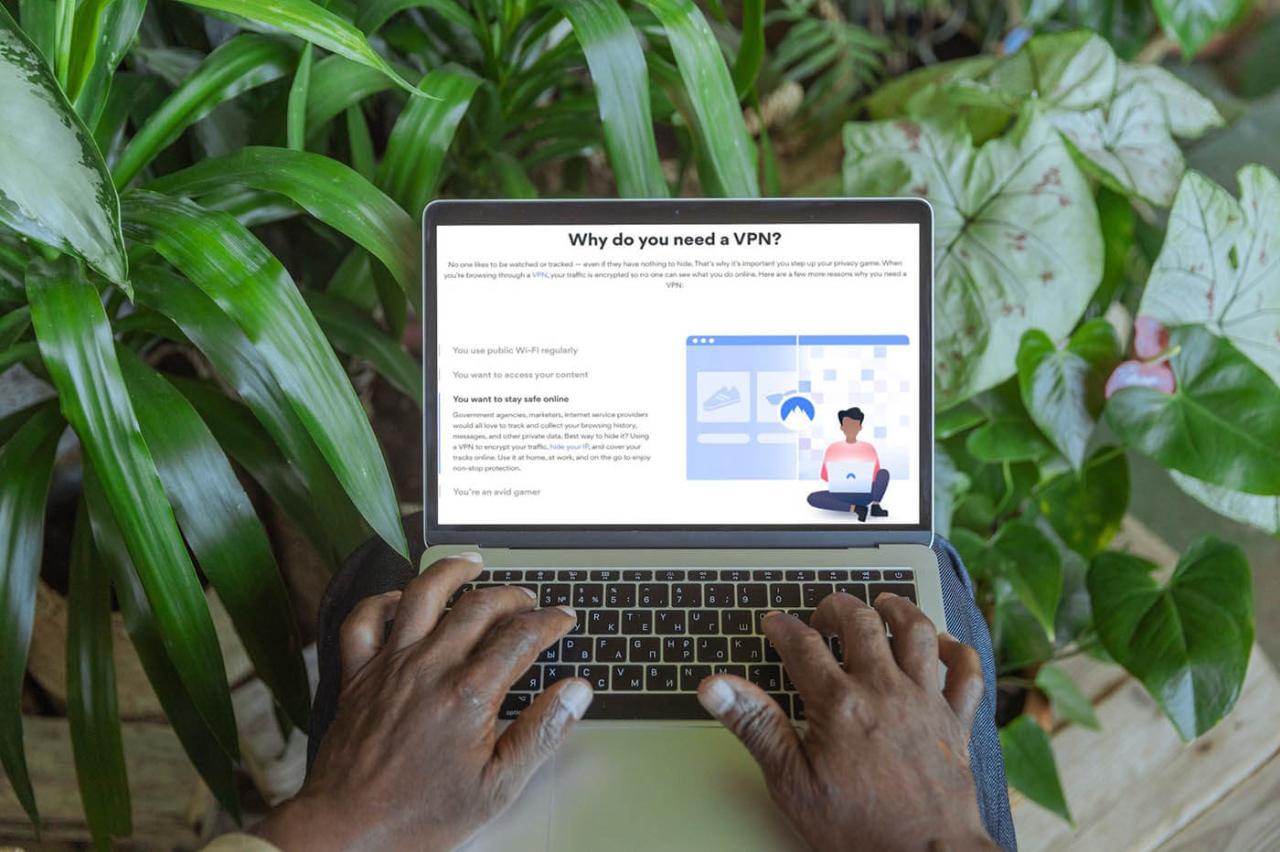
The rise of remote work has brought unprecedented flexibility, but it also significantly increases security risks. Employees accessing company networks from personal devices, often over unsecured public Wi-Fi, expose sensitive data to a wider range of threats. A VPN acts as a crucial security layer, mitigating these risks and protecting both the employee and the company.Remote work exposes company data to numerous vulnerabilities.
Unsecured networks, like those found in coffee shops or airports, are easily accessible to malicious actors who can intercept data transmitted without encryption. Furthermore, personal devices often lack the robust security measures found on company-managed machines, leaving them susceptible to malware and phishing attacks. This vulnerability extends to the potential compromise of personal devices, which can then serve as entry points into the company network.
VPN Enhanced Security for Remote Access
A VPN establishes a secure, encrypted tunnel between a remote device and the company network. This means all data transmitted between the two points is encrypted, rendering it unreadable to anyone intercepting the traffic. The VPN essentially masks the user’s IP address, making it appear as though they are accessing the network from within the company’s internal network, thus bypassing many security measures designed to restrict external access.
This added layer of security protects against various threats, including man-in-the-middle attacks, data breaches, and unauthorized access.
Examples of Preventable Security Breaches
Consider a scenario where an employee accesses company financial data from a public Wi-Fi hotspot without a VPN. A hacker on the same network could potentially intercept this data, leading to a significant security breach. With a VPN, the data would be encrypted, protecting it from such attacks. Similarly, if an employee’s personal device is compromised by malware, a VPN can limit the damage by preventing the malware from directly accessing the company network.
The VPN acts as a barrier, preventing unauthorized access even if the device itself is vulnerable.
Diagram of a Secure VPN Connection
Imagine a diagram showing a remote employee’s laptop (Device A) connected to the internet (represented by a cloud). A VPN client is installed on the laptop. A secure, encrypted tunnel (represented by a thick, protected line) is established between the VPN client and the company’s VPN server (Device B). This server acts as a gateway to the company network (Device C).
All data traveling between Device A and Device C passes through the encrypted tunnel, protected from interception. The user’s IP address is masked by the VPN server, making it appear as if the connection originates from within the company network. This secure connection ensures that even if the internet connection itself is vulnerable, the data remains protected.
Epilogue
So, there you have it—nine compelling reasons why integrating a VPN into your digital life is a smart move. From boosting your privacy and security to unlocking geo-restricted content and preventing ISP throttling, the advantages are undeniable. Don’t leave your online safety to chance; take control of your digital footprint with a reliable VPN. Your peace of mind (and streaming access!) will thank you for it.
Q&A
What is the difference between a free and a paid VPN?
Free VPNs often have limitations like slower speeds, data caps, and fewer server locations. Paid VPNs usually offer better performance, security, and more features.
Can a VPN slow down my internet speed?
Yes, it’s possible, but reputable VPNs minimize this impact. Speed reduction depends on factors like server distance and network congestion.
Is using a VPN legal?
VPNs are legal in most countries, but their use for illegal activities is not. Check your local laws for specifics.
How do I choose a good VPN provider?
Look for a provider with a strong no-logs policy, robust encryption, a wide server network, and positive user reviews.
